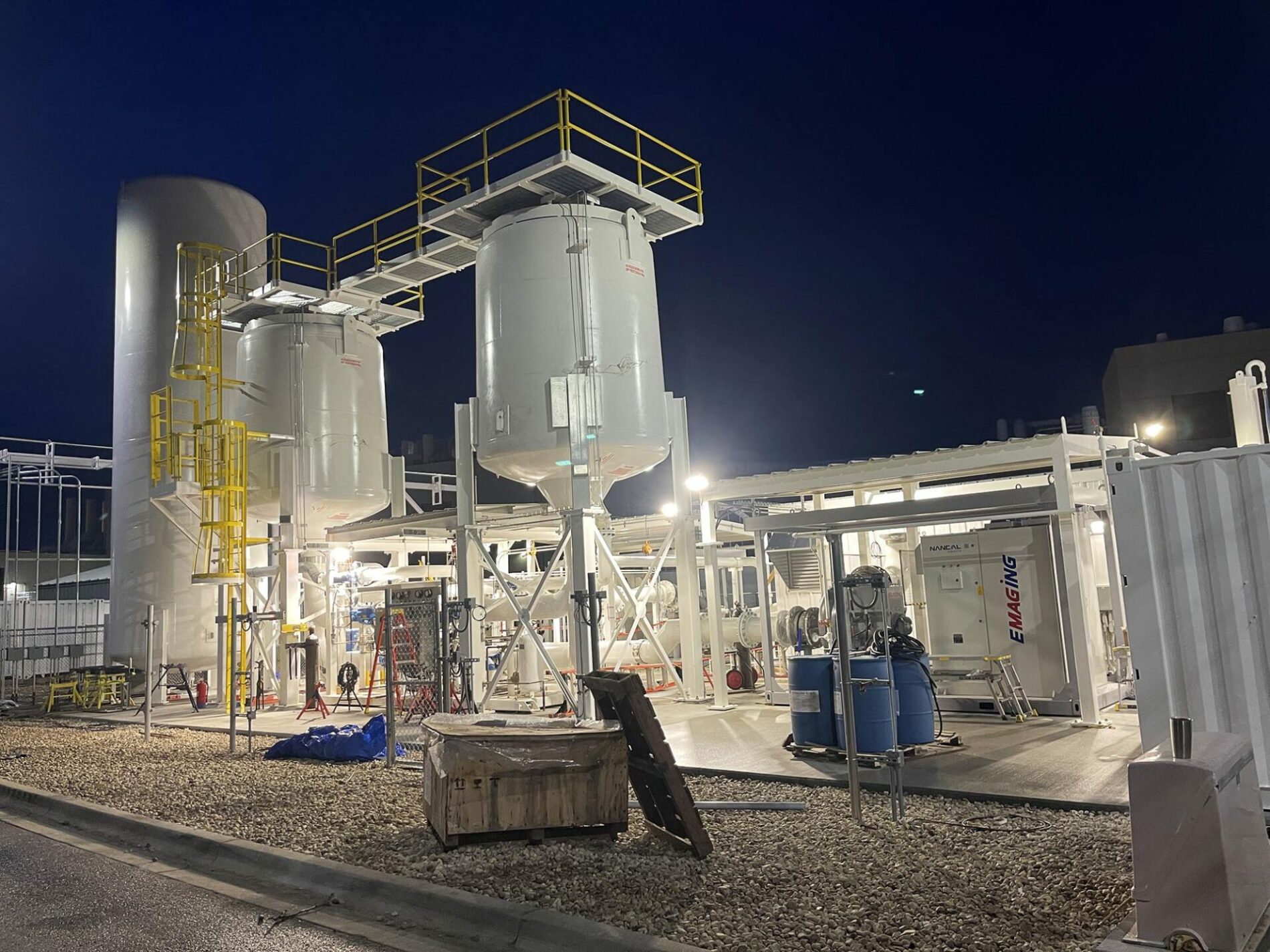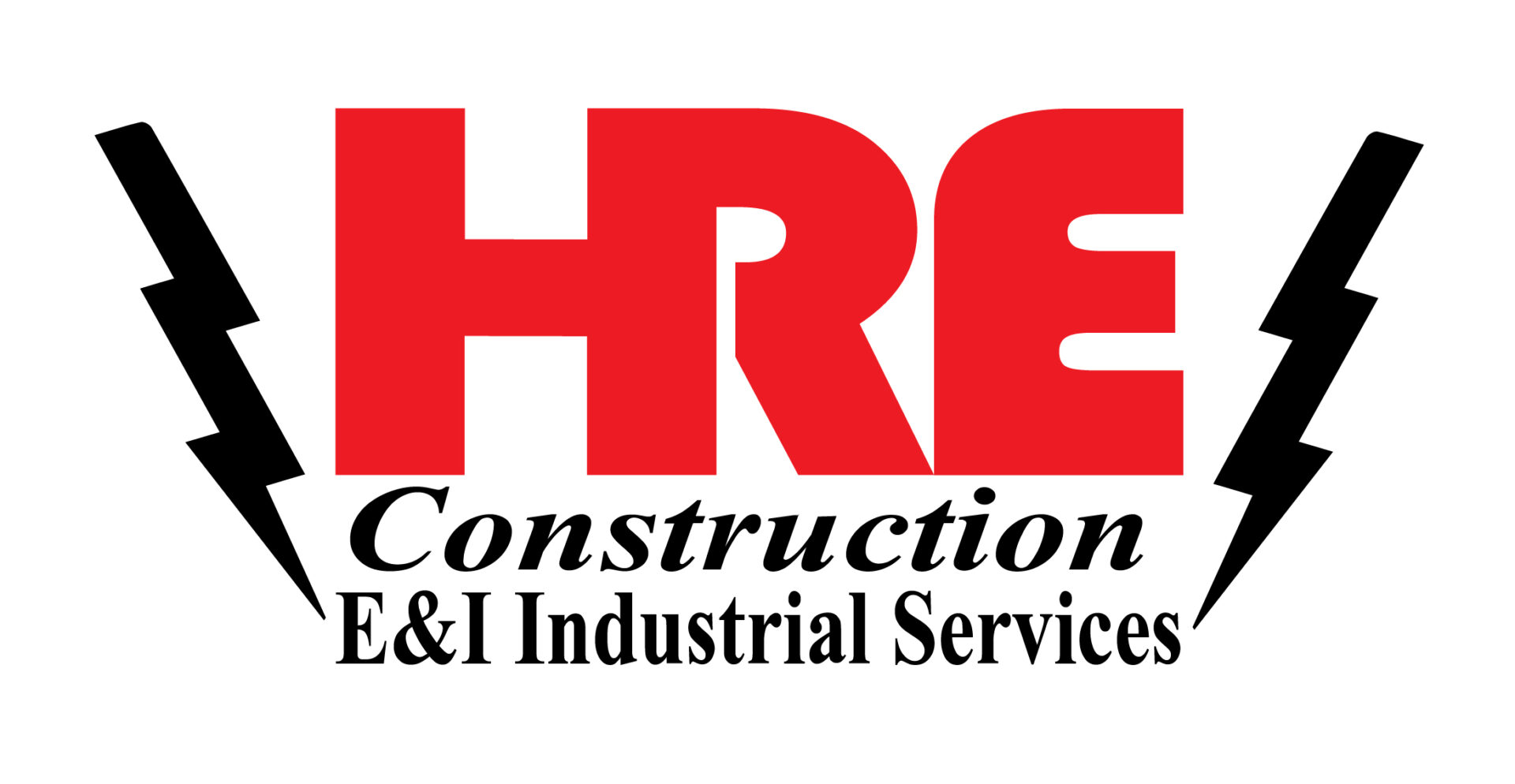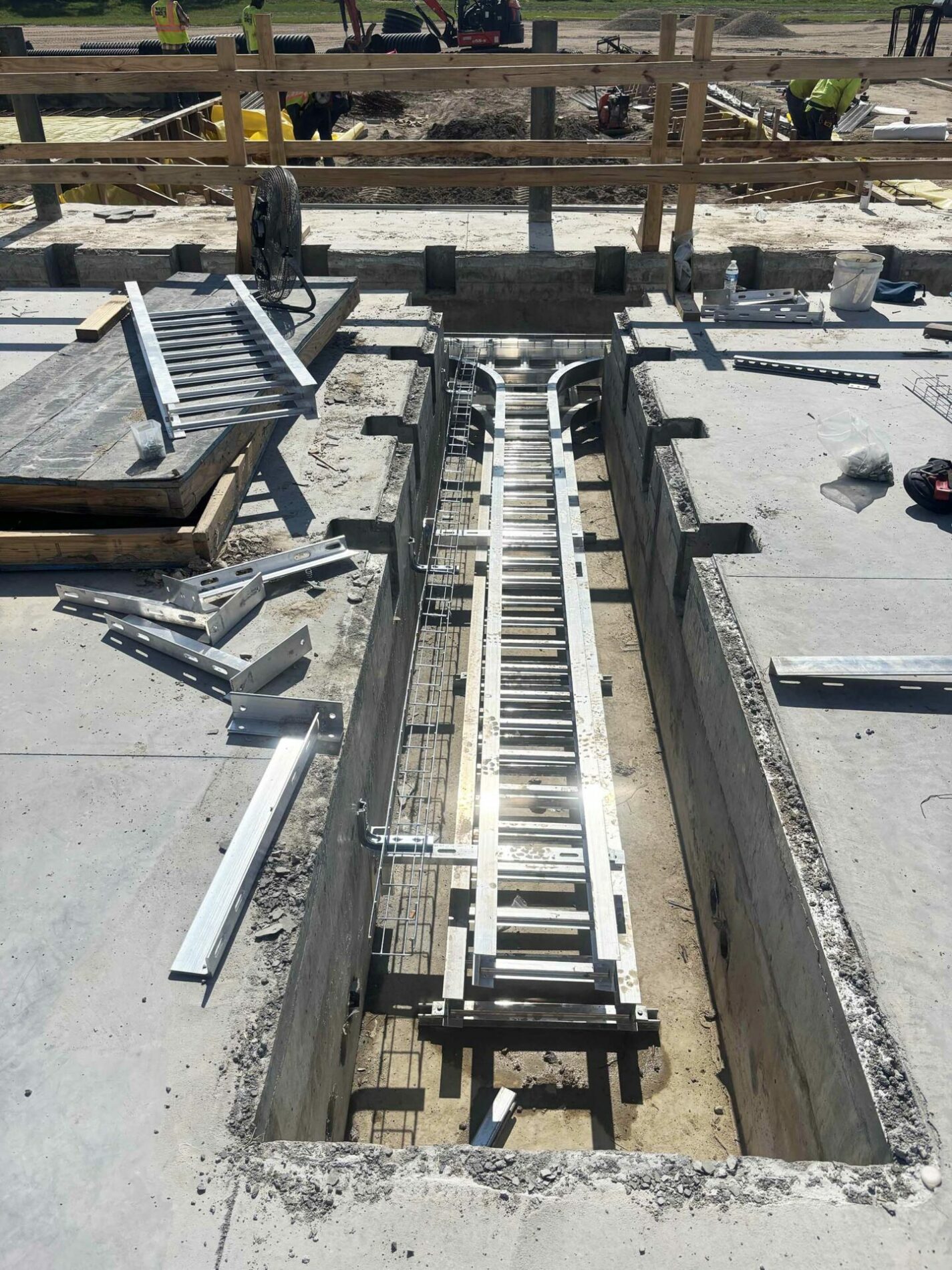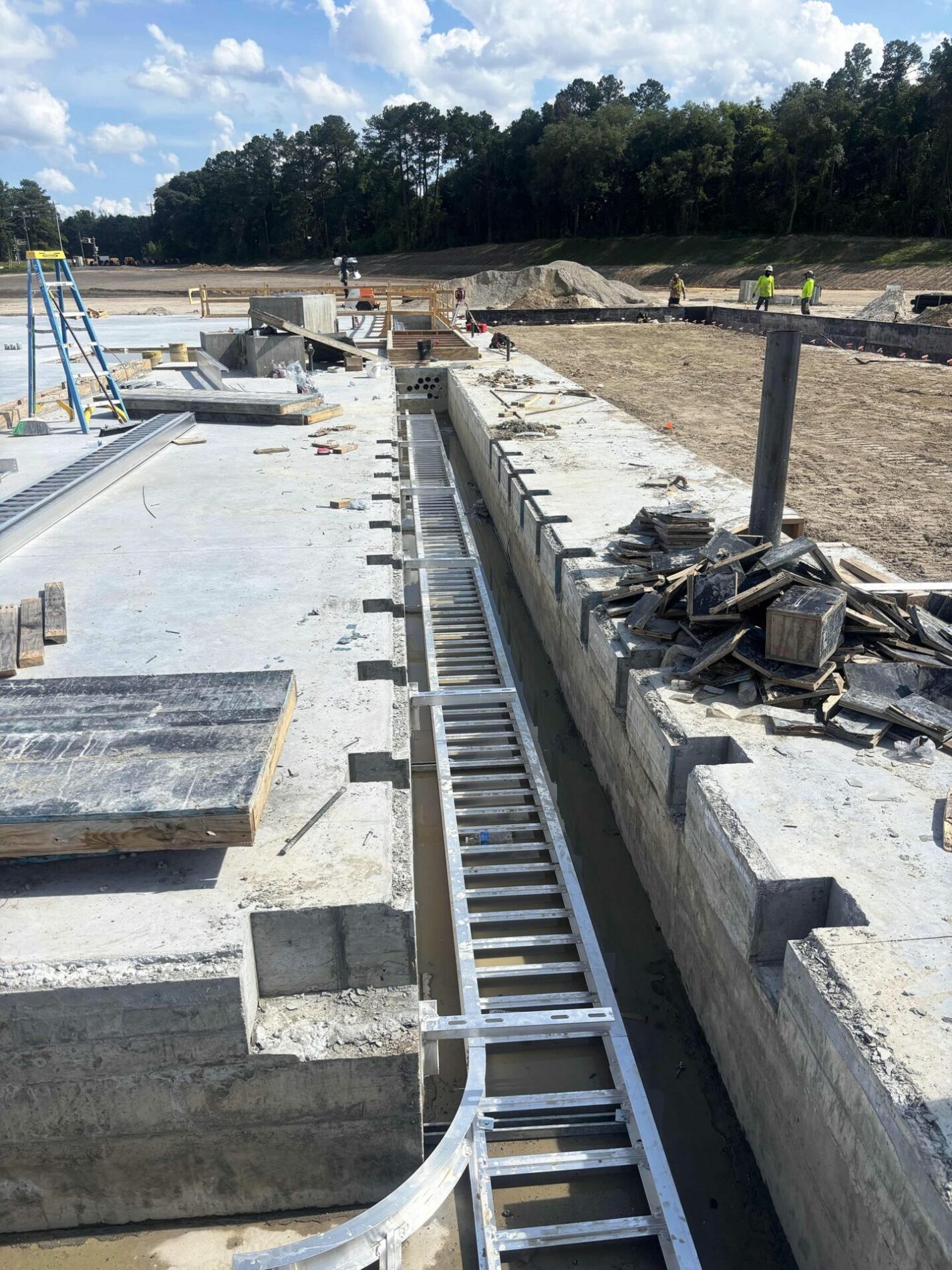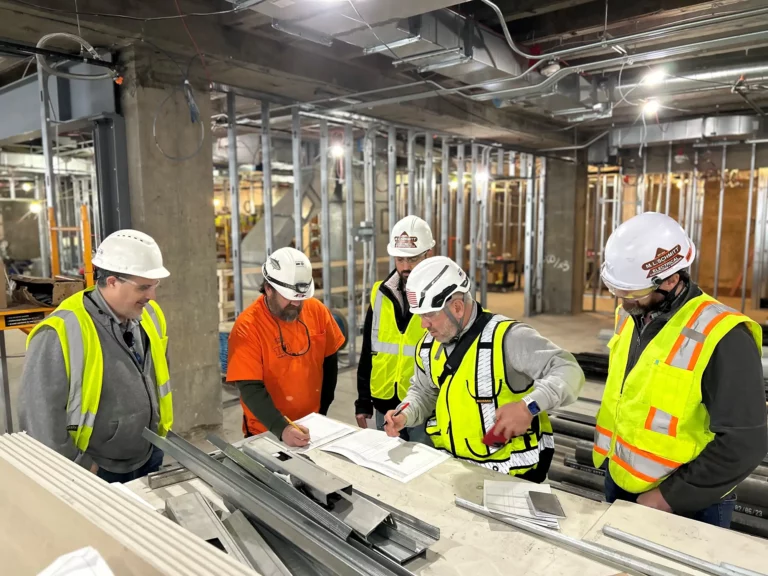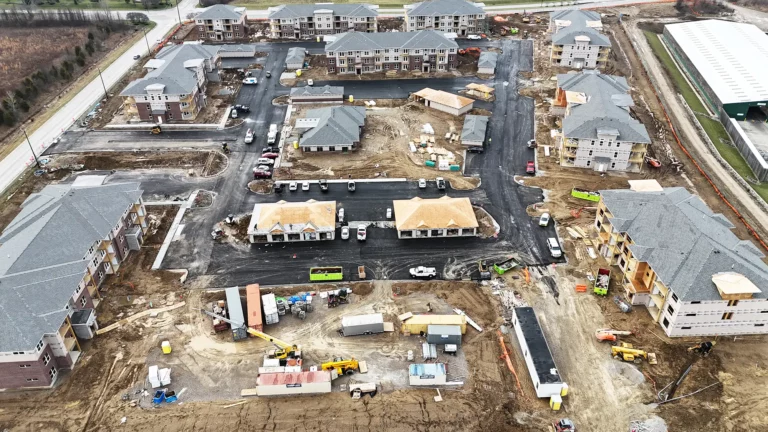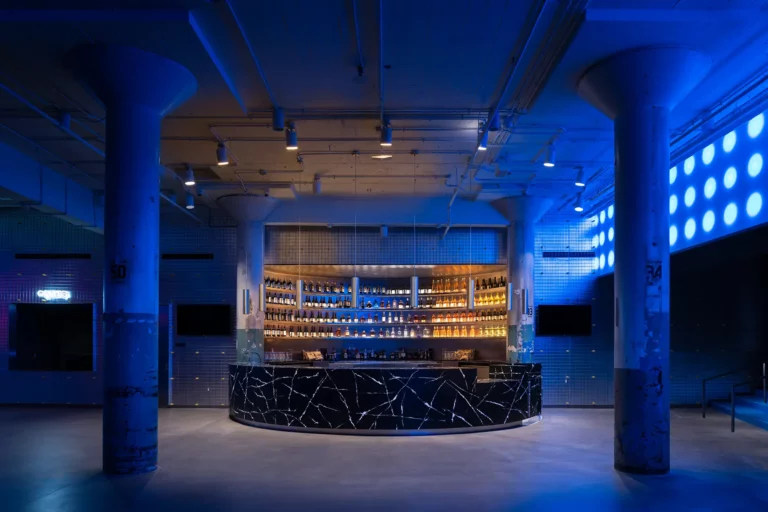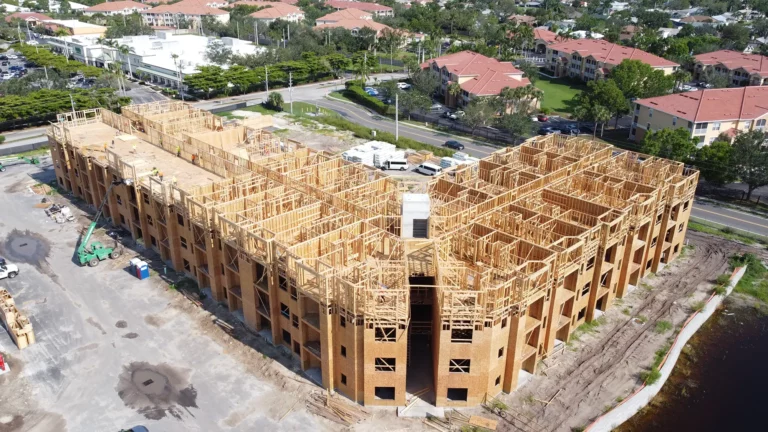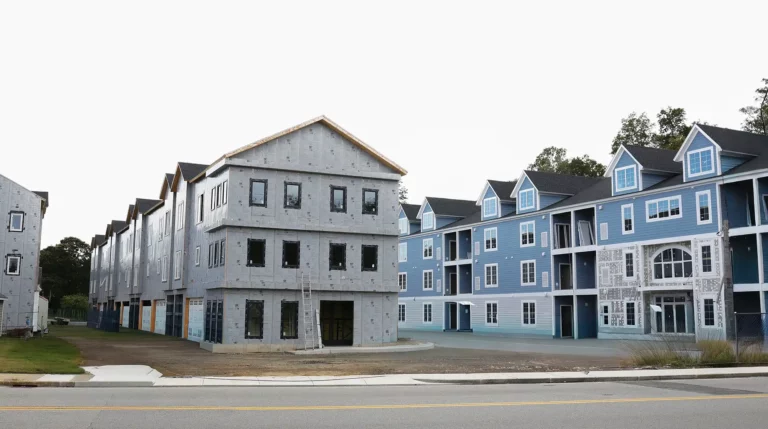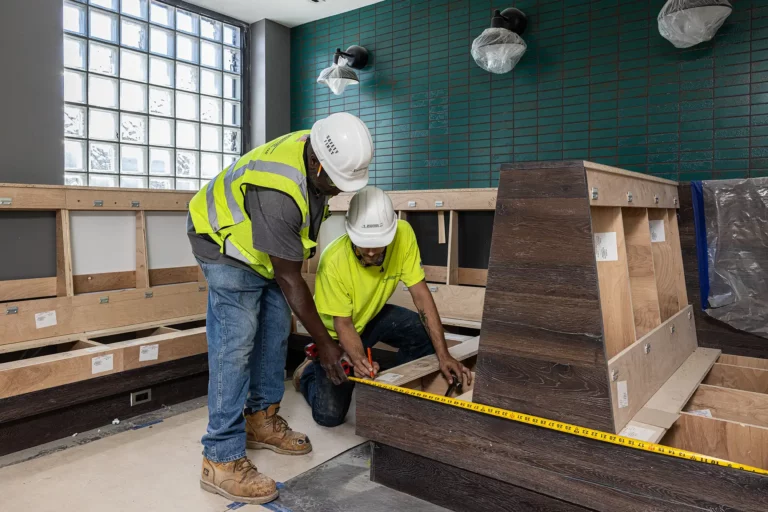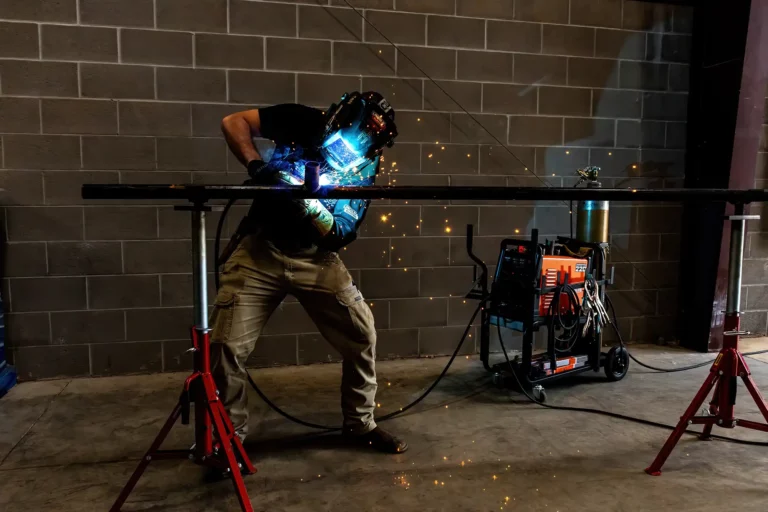This August, HRE Construction set up its sixth anniversary party: roasting a big hog for the employees and families, and providing a bouncy house for the kids.
That’s in large part because, as a family-owned business, HRE strives to treat its employees and customers with similar care. Co-owner James Hill brings 30 years of experience to the business and substantial connections in the region, as he has worked around Columbia, South Carolina for this time.
“We started this company with $5,000, one computer and one truck,” recalled fellow owner Brittany Hill, daughter of James and a leader of industrial projects herself for more than a decade.
Six years into HRE’s incorporation, the count now stands at 13 trucks and 45 employees – not to mention posting $6 million in revenues this fiscal year, or perhaps even $7 million if optimistic projections pay off.
The Hills figured out a lot of things themselves, in those early days. They taught themselves a good deal of what it means to run their own business, and talked with community members when they couldn’t figure things out. The electrical and instrumentation business, luckily, is full of demand. But where the company really strives to shine is by taking care of its people.
Early in HRE’s life as a business, covid hit – along with the safety restrictions, and difficulties in getting even essential business done. But with little money coming in, the company made a commitment to 10 core employees.
“We made sure they stayed working,” Brittany said, “Doing stuff – even around our house – something to keep them working to get them 40 hours a week so they can put food on the table … That cost was on us. We didn’t have a customer paying for that.”
HRE makes similar commitments to its customers, offering great service in the hope that recurring revenues will occur. James says what sets HRE apart from other contractors is “we stay in our lane, do what we are good at and stay focused on our client needs.” The core value for the company, he added, is ” ‘Our customers and our employees make us what we are.’ We believe that, and we stay focused on taking care of our clients and our employees.”
“We stay in our lane, do what we are good at and stay focused on our client needs.”
The clients for HRE include a diverse set of industries, which is typical in the electrical business: a quick rundown of customers includes manufacturers in fiber cables, switchgears, lights, pet foods, paper products and fertilizers; oxygen and nitrogen suppliers; general contractors; mining; and mechanical contractors.
As many small businesses do, however, HRE began with a single client that had confidence in the Hills’ work: a chemical manufacturer in Elgin, S.C. – the same town in which HRE is based, nearby Columbia. Word spread quickly, however. By Year 2, still operating out of the Hills’ house, HRE posted a million dollars in sales after taking on additional clients in the paper industry, light manufacturing and in a high-rise apartment in downtown Columbia.
Revenues have continued to click up like clockwork, growing by a million annually. In 2021, despite covid, the company managed to post $2 million in work on the back of clients in chemical, mining, light manufacturing and paper.
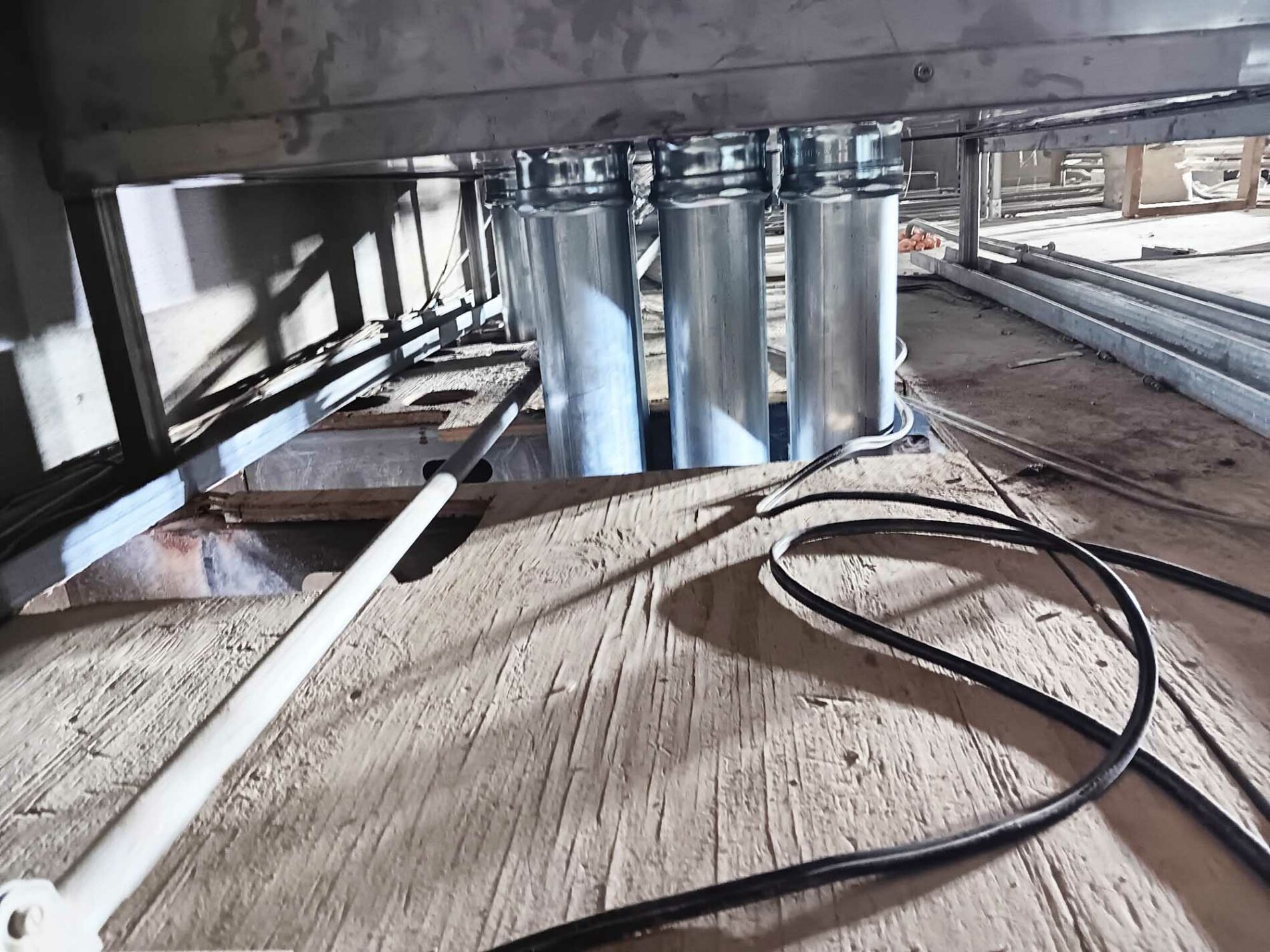
In 2022 came additional industries, enough for the company to move into an office: steel, pet food “and a little distribution,” James said, bringing the company to $3 million. Then growth in existing clients brought $4 million in gross sales in 2023, and $5 million in 2024.
To continue serving the community, HRE is now looking at partnering with local engineering companies to expand services in a way that is beneficial to both parties. An example is Wando Engineering, which works with HRE to offer a wide range of engineering services and arc-flash studies to clients.
That partnership has been happening for less than a year, but HRE said both sides are very happy with the arrangement. “We’re partnering with people who have the same mindset as we do,” Brittany said; for example, HRE passes arc-flash work to Wando, and Wando passes electrical contract opportunities to HRE. “You’re not looking to undermine each other. That’s not how we work.” In addition to this, HRE is planning a golf tournament due to take place in April 2026. According to James, the tournament is an opportunity give back to the community. “We have chosen Richard Wynn academy to sponsor. It is a charter school in Winnsboro SC. We are expecting it to be a success, and all proceeds will be donated to the school.”
Aside from smaller-scale electrical work, HRE is growing into more high-profile projects. Their most recent one is for a steel manufacturer in Darlington, S.C. that is building a new facility. “The facility uses recycled metals and some raw materials to produce several products for the steel market,” James said.
Brittany noted the project is moving fast, which means HRE contractors are just about continually on site to support the work. The plant only recently broke ground, and the underground portion of it is nearly done already. “Then we just kind of hop around wherever we can work, because it’s all going on at one time and they want a commission by January 1,” she said.
Once the project is completed, HRE anticipates that regular maintenance will be required – and as HRE was the vendor that put in the equipment, the natural ask would be for the company to continue maintaining it.
This is a newer line of thinking for HRE, as the difficulty is having enough resources to both take on new builds and to be able to take on the resulting maintenance afterwards, Brittany shared. But now that HRE has 45 employees and anticipates further growth, the personnel and expertise will be available to help customers from builds, to completion, to the maintenance cycle.
The “preferred vendor” approach HRE is adopting is already proving out with a customer in Charleston: “We got into this one plant, and we had two guys out there,” Brittany recalled of that plant’s construction phase, then joked the maintenance will keep her people there indefinitely: “I don’t think they’re ever going to go anywhere, because it’s a fertilizing plant and that stuff eats away at everything.”
More seriously, the real reason this Charleston facility keeps calling HRE back is the level of service the company can now provide. The plant went offline recently, requiring an emergency visit; HRE was able to spare about seven or eight people to rush the facility back online.
“We get reoccurring maintenance work up there because they love our guys’ work – and then [we get] any kind of projects that come up from that,” Brittany said.
Putting the customer first will always be at the heart of HRE’s work, and as such they often call upon references when recruiting for more clients. Whether a plant goes offline, or a new build needs an extra hand, HRE strives to be the vendor of record available to help with the community.
“That’s what we try to do, to make sure that we get reoccurring new business – because we are able to do that,” Brittany said. She noted the size of the company in revenues and employees is ideal for that; it’s big enough to respond efficiently, yet not so big that size stands in the way: “We’re kind of in that sweet spot,” she said.










